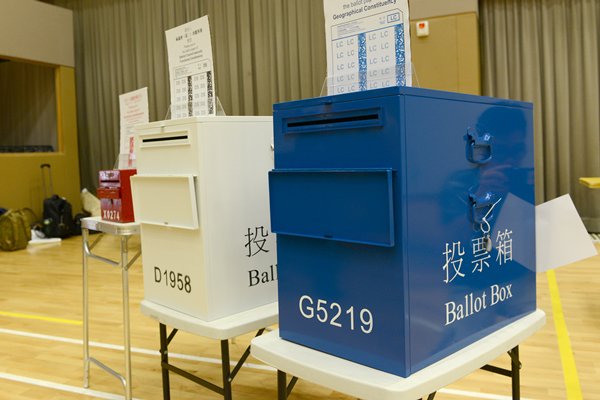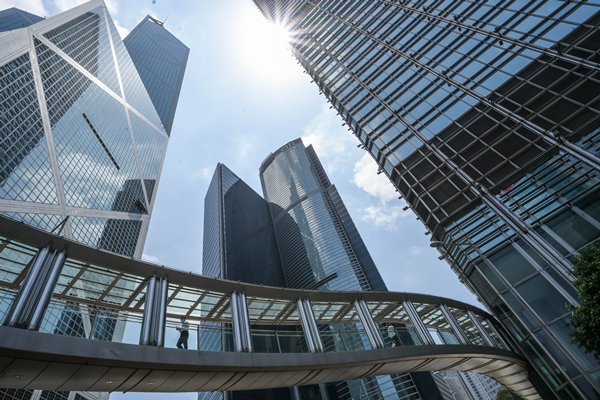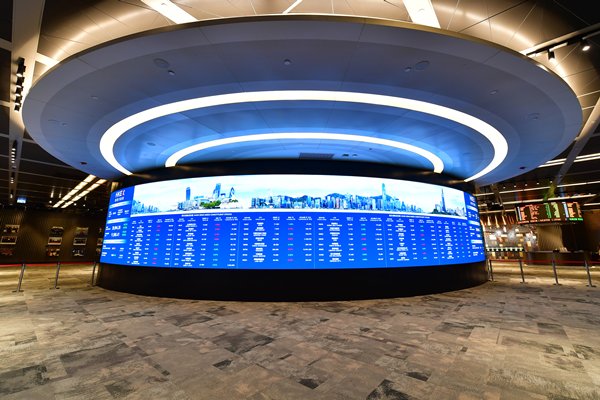
Major breakthroughs in economic development have always been led by technological breakthroughs. To name a few: steam power in the 18th Century, electricity in the 19th and computers in the 20th Century all changed the way people live and work. And now the digital wave is changing the way we live and work. But the process does not happen by itself – we have to seize the opportunity.
The Government recognises how important innovation and technology (I&T) is in realising Hong Kong’s economic potential. That is why, in 2015, we set up the Innovation & Technology Bureau. It co-ordinates I&T efforts across our society, expediting the development of I&T industries and initiatives. That is also why, over the past three years, the Government has allocated more than $110 billion to fast-track our I&T progress.
The unstoppable wave of innovation and technology may be transforming economies, disrupting industries and digitising communities and their institutions everywhere. But change is not always welcome, and more often, resisted. Sometimes fiercely. The weavers and other textile workers who tried to destroy the knitting machines in 19th Century in Nottingham is just one such example.
New partnerships
Another change defining the global economy in the past few years is the escalating tension in China-US relations, from trade tensions to geopolitical disagreements and disputes with allies of the US. Hong Kong, a small and open economy that depends on trade, is inevitably affected by such developments. Yet, facing this new normal in the bilateral relations between the world’s two biggest economies, we are edging our way forward carefully seeking to turn risks into opportunities.
Such widespread friction and deep-rooted differences, unthinkable a few years ago, underlines just how much the world has changed since China joined the WTO (World Trade Organization) in 2001. In the 20 years since then, China’s inexorable rise has created enormous opportunities for globalisation and international co-operation. Those opportunities, in turn, have spurred mutually rewarding business relations with partners all over the world.
Most of those relationships have endured, and new ones continue to emerge. But given today’s evolving political landscape, including the rise of protectionism and the fading of multilateralism, the next steps will not be as easy.
The pandemic, of course, is another turn of the screw, exposing many vulnerabilities and reshaping global supply chains.
That said, Hong Kong’s strategies will not change. We continue to seek every opportunity to create new partnerships, to diversify our export markets, to reach out to the world. We will continue to pursue free trade and investment agreements with like-minded trading partners, including early accession to the Regional Comprehensive Economic Partnership, the world’s largest trade agreement.
Beyond trade and its seemingly intractable problems, there’s another, even larger, challenge: global climate change. In recent years, extreme weather has devastated businesses, communities and economies around the world. The Paris Agreement, which entered into force nearly five years ago, applies to Hong Kong as part of China. And we are doing our part, working to achieve carbon neutrality before 2050. It requires changing some of the ways we do things. But by promoting sustainable living and economic development through structural reform, I am confident we will create new businesses, and innovative opportunities, as well.
In short, ladies and gentlemen, Hong Kong is determined to ride the mercurial waves of change. That means re-examining our focus and re-orienting our priorities. Sometimes that calls for reinforcing existing competitive advantages. Sometimes it demands that we create fresh advantages. Our key markets, for example, have long been Europe and the US. The eastward shift of global economic gravity, however, means we must develop new markets closer to home.
National development
Fortunately, we have a road map. Our country’s 14th Five-Year Plan, together with the long-range objectives through 2035, sets out a comprehensive development direction for the whole nation, Hong Kong included of course. Let me share with you some of the details that are particularly relevant to us.
In the coming five years, China will pursue sustainable, quality economic development, with reform and innovation being the fundamental driving forces. The plan put forward a “dual circulation” development strategy, whereby domestic demand will take the primary role in driving economic development, while enabling domestic and foreign markets to interact with and boosting each other. Domestic demand, technology and opening up are three critical aspects of the new approach.
The Mainland’s middle class is expected to double over the next decade, from 400 million to 800 million. Its increasingly rigorous demand for quality goods and services will create tremendous opportunities for Hong Kong and the businesses that work with us. We will, after all, enjoy access to the Greater Bay Area and its vast and growing consumer market.
I&T is at the heart of our country’s social and economic development. Self-reliance is a key part of the strategy. By establishing a comprehensive industrial system, making breakthroughs in core technologies, China will reduce its dependence on Western technology.
In this, the Greater Bay Area will lead the way, rising as an international I&T hub. Hong Kong will play a central role in this, collaborating with the other 10 Greater Bay Area cities, particularly Shenzhen. Hong Kong and Shenzhen are establishing a “one zone, two parks” development, combining Hong Kong’s R&D (research and development) strengths and Shenzhen’s capabilities in advanced manufacturing. In developing the region into an international I&T centre, we will contribute to China’s technological self-reliance while creating new growth areas for the Hong Kong’s economy.
Over the course of the 14th Five-Year Plan, China will continue to open up, linking domestic circulation with international circulation, and strengthening co-operation with the rest of the world. That will surely boost Hong Kong’s interaction and connections between the Mainland and the international markets.
And by helping to align product standards, professional services standards between the Mainland and overseas markets, Hong Kong will become a more attractive place for Mainland companies to set up regional headquarters and research offices in “going out” to the world.
Beyond supporting Hong Kong’s development as an I&T hub, the plan recognises Hong Kong’s future as an international aviation hub and counts on our traditional competitive advantages in international finance, shipping and trade.
While the Five-Year Plan presents great opportunities for Hong Kong, some of the mega trends I mentioned – from geopolitical tensions, to climate change and of course, the pandemic – pose huge challenges. It is also important to recognise and tackle the key constraints which impede the economic development and competitiveness of Hong Kong, including land supply and talent pool. Only by addressing these constraints, could we fully unleash our growth potential and turn opportunities into real social and economic benefits for Hong Kong.
As befits a conference sponsored by HKU (the University of Hong Kong), the agenda promises rewarding discussion in a great many ways, and I know you are looking forward to that. Allow me for now to leave you with two questions, to get the ball rolling.
First, with Hong Kong’s comparative advantages and China’s development road map in mind, how should we position ourselves that would enable us to play to our strengths in the country’s development, benefiting both the country and ourselves? Taking financial services as an example, Hong Kong, as an international financial centre, has long been a world-class magnet for IPOs (initial public offerings). However, going forward, with carbon neutrality becoming the cornerstone of future growth global sustainability, how can we further capitalise on our fund-raising platform to lead in green and sustainable finance in support of the country’s drive to green economy?
Second, with regard to innovation and technology, we have identified four key areas to concentrate our efforts and investment, namely artificial intelligence and robotics, smart city, fintech and biotech. Which subsector in these areas will Hong Kong have the best potential to develop into a rewarding industry? For example, biopharmaceutical seems to be one. What do you think?
Financial Secretary Paul Chan gave these remarks at the conference on The Future of Hong Kong Economy organised by the University of Hong Kong Business School on May 14.
via Moroccan Trader I&T key to HK’s growth potential









